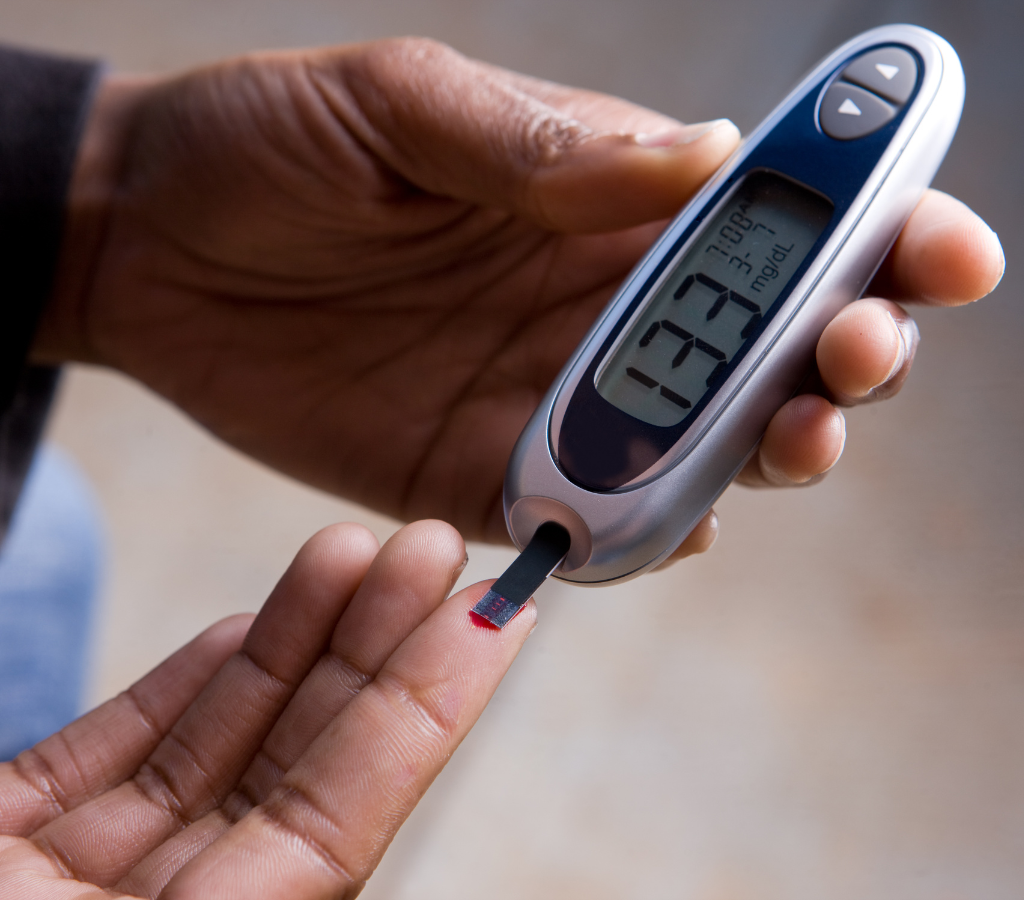High blood sugar can seem scary, but it is often manageable by eating healthy and regularly working out. High blood sugar (hyperglycemia) is a common problem among those with Type 1 and Type 2 diabetes. Frequent spikes or prolonged periods of high levels can lead to long-term health complications. It is important to recognize the symptoms and prevent them before they worsen.
Risk Factors of High Blood Sugar
High blood sugar affects diabetics, those with hormonal disorders and people with long-term medical conditions.
However, there are other factors that play a role, such as:
- Genetics
- Age
- Lack of physical activity
- Prediabetes
- Being overweight
- Lack of sleep
- Infections
- Trauma
- Stress after surgery
In someone with diabetes, constant uncontrollable high levels can be a sign to change medication, start taking medication or possibly increase the dosage of insulin. If changes need to be made make sure you talk to your doctor.
Causes
Diabetes is characterized by a lack of insulin and insulin is key in fighting rising blood sugar levels.
Many factors contribute to high blood sugar, but a leading one is a poor diet. The body breaks down the consumption of carbohydrates into mostly glucose which elevates the levels. Carbohydrates are foods like white bread, cake and cookies. It is important to recognize foods that are high carb and try to replace them with healthier foods.
Symptoms
The most common symptoms are:
- Increased urge to urinate
- Increased appetite
- Blurred vision
- Increased thirst
- Headaches
- Dryness of the mouth
- Lightheadedness
- Fatigue
- Tingling sensation or numbness in extremities
When to see a Doctor
Consider getting your blood sugar levels checked if you identified with the previous symptoms. It is important to note that the symptoms listed above can also be indicators of diabetes.
There are more serious symptoms to look out for that might indicate an immediate trip to the doctor or an emergency room such as nausea, vomiting, lightheadedness, severe fatigue and stomach pain.
Having high blood sugar for a prolonged time is dangerous for diabetics and non-diabetics alike because it can lead to:
- A heart attack
- Heart disease
- Blood vessel damage
- Kidney failure
- Kidney damage
- Nerve damage
- A stroke
- Eye damage
- Skin problems
How to prevent high blood sugar
Those with Type 1 need insulin to lower their blood sugar and certainly can benefit from eating healthy and regular exercise. For people with Type 2, levels can be managed with medication, insulin, dietary changes, weight loss or exercise depending on a doctor’s recommendation.
Maintaining a regular workout routine doesn’t have to be a chore, making your workout an enjoyable part of your day can be the key to continuity. Upholding healthy eating habits like eating fewer carbs is recommended. Instead, eat more foods that are high in fiber like fruits, vegetables and whole grains.
The average adult needs 7-9 hours of sleep. Without the proper amount of sleep, the hormone cortisol rises causing blood sugar levels to rise with it. Cortisol also secretes when stress occurs. Though stress can feel unavoidable, exercising and allowing time for relaxation can help to reduce this.
Overall, keep in mind what causes high blood sugar as that information is essential to prevent it. Simple changes in your diet, sleep schedule and everyday routine can go a long way.
Check out our website for healthy recipes and join our community to receive motivation to form new eating habits.

